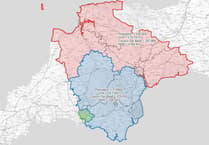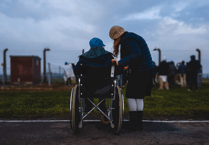Plans have been submitted for a new 10-bed unit to help bring an end to long-distance placements.
NHS bosses say this will go ‘hand in hand’ with improvements to local care and support of individuals with a learning disability and autistic people so they can live healthier, happier lives in their local communities.
The unit at Langdon, and another in Bristol, will be designed specifically to care for individuals with a learning disability or autistic people who would benefit from treatment in a hospital and whose needs cannot be met in a mainstream mental health hospital, even with reasonable adjustments.
It is the first time systems across the region have worked together to deliver these services and while it will result in an increase in beds in the South West, it will not result in more people being admitted to hospital.
Instead, only those who genuinely need to be in hospital can be, and closer to home. Only a very small number of people will require these services.
The centre proposed for the Langdon Hospital site in Dawlish would be run Devon Partnership Trust (DPT).
Jill Crook, director of nursing at NHS England south west, said: ‘This is fantastic news for the south west and represents years in the making of hard work to drastically transform the health services available for individuals with a learning disability and autistic people.
‘This is part of a wider programme of work, including continued improvement to community services and the new beds will not result in more people being admitted to hospital, instead only those who genuinely need to be in hospital can be, and closer to home.
‘We are working hard across our systems, and importantly with people with lived experience to get this right.’
Tina Emery, south west regional representative and director for the National Network of Parent Carer Forums said: ‘This is brilliant news for families and their loved ones in the South West.
‘For far too long parents and carers have had to travel hours at a time, often hundreds of miles from home to visit their loved ones.
‘New services in the South West will make it easier for parents and carers to visit, support and advocate for their loved ones, speeding up the process of recovery and them returning home.’
Dr Sonja Manton, director of strategy at Devon Partnership NHS Trust, said: ‘This is a hugely exciting development. We know that there are people with a learning disability, autistic people, or people with other vulnerabilities for whom, even with reasonable adjustments, the environment of a mainstream hospital cannot provide optimal care and treatment for their acute mental health needs. It is for these people that the provision of adaptable, inpatient mental health support is being developed.
‘These specialist environments are in short supply in the south west, which is one of the main reasons that some people have had to get the care they need outside the region.
‘We welcome the significant investment in this new development locally and our goal is to continue to move away from an over-reliance on hospital care in all areas of our work. This includes developing more and better community-based alternatives for supporting people with mental health needs and a learning disability or autism. However, where hospital care and treatment are the most clinically appropriate form of support, we want people to have access to local, high-quality care in a modern, therapeutic environment – with a focus on recovery and moving towards independent living.’





Comments
This article has no comments yet. Be the first to leave a comment.